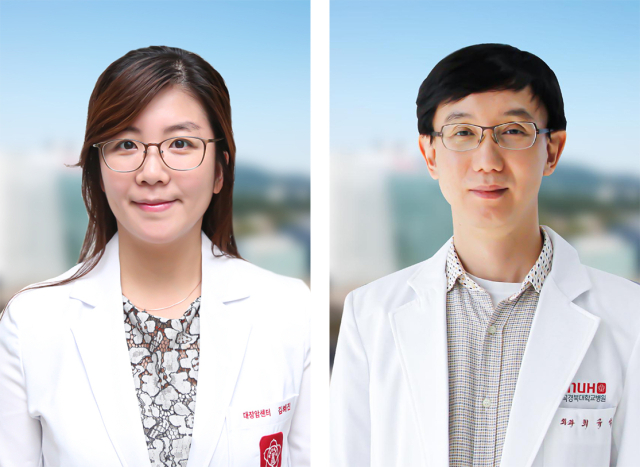Bari Polyclinic Pioneers CAR-T Therapy for Multiple Myeloma, Offering New Hope to Patients
April 7, 2024
A notable advancement in the treatment of multiple myeloma is underway at the Polyclinic of Bari, Italy. As of April 7th, the hospital has begun administering CAR-T therapy, a cutting-edge approach in the fight against blood cancers. This personalized treatment harnesses a patient’s own immune cells to target adn destroy cancer cells. For U.S. patients battling relapsed or treatment-resistant multiple myeloma, this development offers a glimpse into the future of cancer care, where personalized medicine is increasingly becoming a reality.
“This form of cell immunotherapy is truly revolutionary,” explains Pellegrino Musto, Full Professor of Hematology at the University of Bari and Director of the Polyclinic’s operating unit. “We have already applied it for about a year successfully in cases of lymphoma, but now it will also be available for patients with recurrence or resistant myelomas, after at least 3 previous treatment lines.” This expansion of CAR-T therapy to multiple myeloma patients signifies a major step forward, potentially offering a lifeline to those who have exhausted other treatment options. In the United States, the FDA has already approved several CAR-T therapies for various blood cancers, reflecting the growing recognition of this treatment’s potential.
Understanding CAR-T Therapy: A “Living Drug”
CAR-T therapy (chimeric Antigen Receptor-T Cells) is often described as the first “living drug” in medicine. The process begins with collecting lymphocytes—a type of white blood cell—from the patient’s blood. These cells are then genetically modified in a laboratory using bioengineering techniques to equip them with the ability to recognize and eliminate cancer cells.
Following a preparatory treatment called lymphodepletion, which creates space in the patient’s immune system, the modified T-cells are infused back into the patient’s body. International studies have demonstrated that CAR-T therapy can lead to more durable and effective responses compared to conventional treatments. For instance, a study published in the New England Journal of Medicine showed that CAR-T therapy resulted in considerably higher rates of complete remission in patients with relapsed or refractory large B-cell lymphoma, compared to standard chemotherapy.
The lymphodepletion process involves using chemotherapy to temporarily lower a patient’s white blood cell count. This step is crucial because it reduces the number of existing immune cells that might compete with the engineered CAR-T cells, allowing them to expand and effectively target the cancer. While lymphodepletion can cause side effects such as fatigue and increased risk of infection, it is generally considered a necessary step to maximize the effectiveness of CAR-T therapy.
Accreditation, Training, and Potential Complications
Mario Delia, coordinator of the CAR-T multidisciplinary team at the Polyclinic, emphasized that this achievement was made possible through accreditations from the National Transplant Center and the Jacie International Committee, followed by necessary regional authorization. These accreditations ensure that the Polyclinic meets rigorous standards for cell therapy and transplantation, safeguarding patient safety and treatment quality.
The success of CAR-T therapy also relies heavily on the specialized training of medical and nursing staff. Healthcare professionals must be prepared to manage potential complications associated with the therapy, such as cytokine release syndrome (CRS) and neurological and infectious risks. CRS is an inflammatory response that can occur when the engineered T-cells release a large number of cytokines, leading to symptoms such as fever, low blood pressure, and difficulty breathing. Neurological toxicities can manifest as confusion, seizures, or even coma. Prompt recognition and management of these complications are essential for ensuring positive patient outcomes.
“An remarkable result, the result of a choral work,” Professor Musto highlighted, expressing gratitude to the Puglia Region, University, Transplant Center, Strategic Management of the Polyclinic, and all the departments involved, from medicine transfusion to resuscitation, from neurology to pharmacy, to staff of hematology. “From today we can offer our patients an extra concrete possibility,the best available worldwide.”
CAR-T Therapy in the U.S.: A Growing Landscape
The advancements at the Polyclinic of Bari mirror the growing adoption of CAR-T therapy in the United States.Several CAR-T therapies have been approved by the FDA for the treatment of various blood cancers, including certain types of lymphoma, leukemia, and multiple myeloma.These therapies represent a significant step forward in cancer treatment, offering new hope to patients who have not responded to traditional therapies.
The cost of CAR-T therapy in the U.S. can be substantial, often exceeding several hundred thousand dollars per treatment.This high cost raises concerns about accessibility and affordability, particularly for patients with limited financial resources. Tho, manny hospitals and cancer centers offer financial assistance programs and resources to help patients navigate the costs of CAR-T therapy.
Ongoing research and clinical trials are exploring new ways to improve the efficacy and safety of CAR-T therapy. Scientists are working to develop CAR-T cells that are more effective at targeting cancer cells, less likely to cause side effects, and easier to manufacture. These advancements hold the potential to further expand the use of CAR-T therapy and improve outcomes for patients with blood cancers.
Potential Counterarguments and Considerations
While CAR-T therapy holds immense promise, it is crucial to acknowledge potential counterarguments and limitations. One concern is the potential for long-term side effects, which are still being studied. Another challenge is the complexity of manufacturing and delivering CAR-T therapy, which requires specialized facilities and expertise.
Moreover, not all patients respond to CAR-T therapy, and some may experience relapse after initial remission. Researchers are actively investigating factors that predict response to CAR-T therapy and developing strategies to overcome resistance.
Despite these challenges, CAR-T therapy represents a paradigm shift in cancer treatment, offering the potential for durable remissions and improved quality of life for patients with blood cancers. As research continues and technology advances,CAR-T therapy is likely to play an increasingly important role in the fight against cancer.
Key Points Summary
| Key Aspect | Details | U.S. Relevance |
|---|---|---|
| CAR-T Therapy Launch | Polyclinic of Bari initiates CAR-T therapy for multiple myeloma on April 7th. | Reflects the global expansion and acceptance of CAR-T therapy as a viable treatment option. |
| Treatment Mechanism | Personalized immunotherapy using modified patient lymphocytes to target cancer cells. | Mirrors CAR-T therapy approaches being used in U.S. hospitals and research centers. |
| Patient Eligibility | Offered to patients with relapsed or treatment-resistant myeloma after at least three prior treatment lines. | Aligns with typical eligibility criteria for CAR-T therapy trials and treatments in the U.S. |
| Accreditation & Training | Emphasizes the importance of accreditation and specialized training for managing therapy complexities. | Stresses the importance of certified centers and highly trained medical personnel for safe and effective management. |
| Potential Complications | Highlights risks like Cytokine Release Syndrome (CRS) and neurological issues,requiring vigilant monitoring. | Underscores the need for thorough post-treatment care and management protocols, a critical aspect in U.S. treatment centers. |
Given the recent advancements in CAR-T therapy, notably the news from the Polyclinic of Bari, Italy, regarding their initiation of CAR-T therapy for multiple myeloma, what impact do you anticipate this will have on the treatment landscape for multiple myeloma patients globally?
Archyde Interviews Dr. evelyn Reed on CAR-T Therapy Advancements for Multiple Myeloma
April 10, 2024
Introduction
Welcome to archyde News. Today, we have the distinct pleasure of speaking with Dr. Evelyn Reed, a leading oncologist specializing in hematology and cell therapy at the City of Hope Comprehensive Cancer Center.Dr. Reed, thank you for joining us.
Opening Question
Archyde: Dr.Reed,the recent proclamation from the Polyclinic of Bari,Italy,regarding their initiation of CAR-T therapy for multiple myeloma is critically important. From your outlook in the U.S., how does this advancement align with current trends and progress in treating blood cancers like multiple myeloma, especially given the use of CAR-T therapy?
Dr. Reed: Thank you for having me. The news from Bari is indeed a positive development. It mirrors the broader global trend of expanding the submission of CAR-T therapy. in the U.S., we’ve observed significant advancements in CAR-T for various blood cancers. This expansion to include multiple myeloma patients, who have weary other treatment options, is a testament to the therapy’s potential and ongoing research efforts. It’s a recognition that personalized medicine, specifically cell immunotherapy, is becoming a cornerstone in cancer treatment. It also reflects growing commitment to provide more effective options, particularly for patients with relapsed or treatment-resistant multiple myeloma.
Deeper Dive into CAR-T Therapy
Archyde: Could you elaborate on the core of CAR-T therapy? How does this “living drug” work within the body to fight multiple myeloma, and what makes it so effective, as highlighted in the article?
Dr. Reed: CAR-T therapy is revolutionary because it harnesses the patient’s own immune system. It begins by extracting the patient’s T-cells. In the lab, these cells are genetically modified to carry a special receptor — the chimeric antigen receptor, or CAR — designed to target and bind to myeloma cells. After lymphodepletion, a preparatory step using chemotherapy, these modified T-cells are then infused back into the patient. They then recognize and attack the cancer cells throughout the body. Early results,combined with ongoing studies,demonstrate the therapy’s capacity to induce longer-lasting and deeper responses compared to conventional treatments. The article highlights the success in lymphoma; the success of CAR-T therapy for multiple myeloma could offer a potential lifeline for patients.
Addressing the Challenges
Archyde: The article mentions the importance of specialized training, potential complications like cytokine Release Syndrome (CRS) and neurological toxicities. What are the key considerations in managing these risks effectively, and what advancements are being made in mitigating these side effects?
Dr. reed: Managing complications is a critical aspect of CAR-T therapy. CRS and neurological toxicities require vigilant monitoring and prompt intervention. We use established protocols and medications to manage these side effects. Some of the advancements include better supportive care, developing more targeted CAR-T cells, and discovering predictive biomarkers.Thorough patient selection and a skilled multidisciplinary team — including hematologists, intensivists, and neurologists — are critical. Continuous research is key to refining the approach, and improving patient outcomes.
Cost,Accessibility,and Future Directions
Archyde: The cost of CAR-T therapy is frequently enough a barrier in the U.S. How are healthcare providers and researchers addressing concerns about accessibility and affordability when it comes to CAR-T therapy and what are the future directions for CAR-T research?
Dr. reed: The high cost is a significant challenge. To overcome this, many institutions offer financial assistance programs and work with insurance companies to help patients manage costs. Regarding future directions, research is focused on improving CAR-T cell efficacy, safety, and accessibility. This involves developing more potent CAR constructs, reducing toxicity, and exploring ways to make the manufacturing process faster and more cost-effective. Researchers are also investigating the combination of CAR-T therapy with other treatments to enhance its efficacy.
Conclusion
Archyde: Dr. Reed, the advancements in CAR-T therapy are undoubtedly exciting news for patients and the medical community. If you could leave our readers with one key takeaway, what would it be?
Dr. Reed: My key takeaway would be hope. CAR-T therapy illustrates how far we’ve come in cancer treatment. it’s a prime example of translational medicine, turning scientific advancements into real treatment benefits for patients, particularly those with few other options. The continuous progress gives me hope for the future of cancer care.If you know someone that might potentially be affected, please talk to them so they know to ask their doctor if this treatment is correct for them.
Concluding Thoughts
Archyde: Thank you, Dr. Reed, for providing such insightful details for our readers. It’s clear there’s significant momentum in CAR-T therapy, and this could pave the way to more successful treatment for blood cancers. To our readers,what are your thoughts on the future of CAR-T therapy? Share your opinions in the comments below; your insights enrich our community.







